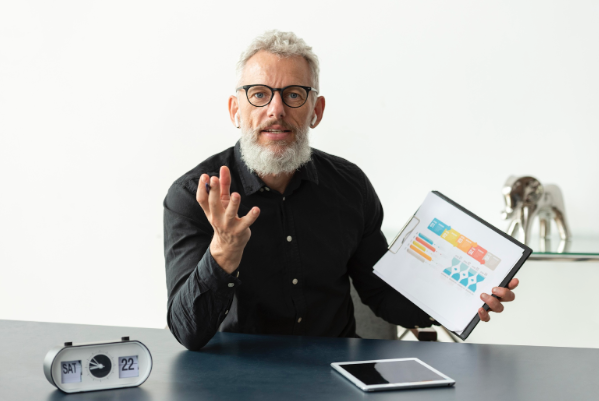Have you ever questioned the reasons behind the thriving nature of some traders in volatile markets while others seem to excel during steady trends? The answer frequently isn't found in the technical knowledge or sheer capital of these individuals but in their personality traits. Trading Contracts for Difference (CFDs) offers remarkable flexibility that eludes many other trading methods, allowing traders to profit from markets that are doing anything but maintaining a steady trend. Yet even with access to the same tools and information, different individuals often react in dramatically different ways to the same market conditions. Why is this?
Envision this circumstance: A pair of traders observe a sharp 3% downturn in the S&P 500. Trader A promptly assesses an array of technical indicators, combs through several economic calendars, and painstakingly size up what bets to place before placing them. Meanwhile, Trader B implicitly trusts their better judgment and, with barely a second to lose, initiates a short in the S&P 500, reaping the rewards of a market that appears to be tumbling down. Both outcomes entail a set of profitable trades, but they illustrate two starkly different paths one can travel in the trading world.

Your character forms the way you handle information, manage risk, deal with stress, and make decisions under pressure. These psychology patterns are what you're working with when you develop a trading strategy. If you align your strategy with your natural tendencies, you're much more likely to achieve consistent success in trading.
Personality Overview: Mapping Psychology to Trading Styles
We can look at established psychological frameworks, such as the Myers-Briggs Type Indicator (MBTI) or the DISC model, to understand how personality affects trading behavior. These well-known systems shed light on the valuable insights they provide—along with frameworks that may not be as well-known but nonetheless are useful in understanding trading behavior—into how different types of individuals make decisions, assess risks, and process information.
Four Common CFD Trader Archetypes
Based on extensive research and trading observations, most CFD traders fall into one of four personality-based archetypes. Understanding these categories helps identify your natural trading style and optimize your approach accordingly.
For analytical traders, trading CFDs is a lot like being a scientist and conducting an experiment. These traders tend to spend huge amounts of time conducting detailed and exhaustive research and pull the trigger only when they feel 100% comfortable with a decision to trade.
Recommended Strategies for Each Personality Type
It is only the first step to understand your trader personality. The real value comes from aligning your CFD trading strategy with your natural tendencies and using appropriate tools and techniques to maximize your strengths and minimize your weaknesses.
Traders who perform analysis and work systematically should consider which of their capabilities naturally lend themselves to a systematic approach. For some, it will be their patience. Others will find that research is where they shine. These capabilities will set them on a path to an execution model that works for them. I like to think of the backbone of these systematic traders" strategies as being technical analysis with indicators like moving averages, Bollinger Bands, and RSI. These traders may also see patterns in trends and use these as part of their strategies.
Conclusion:
Your CFD trading behavior is significantly influenced by your personality, but it is not your path in the markets set in stone. Knowing your natural tendencies lets you work with the foundation that is your personality to develop strategies that leverage your strengths—rather than making you work against them.
Identifying and understanding inherent decision-making patterns Working with natural decision-making patterns Risk management strategies appropriate to the individual Assessing instruments and time frames Selection Systems that compensate for individual personality-based biases that affect decision making Adaptation and continuous change processes that allow improvisation and use of good forms when the market changes unexpectedly.
For more info:-
online trading platform
forex trading app